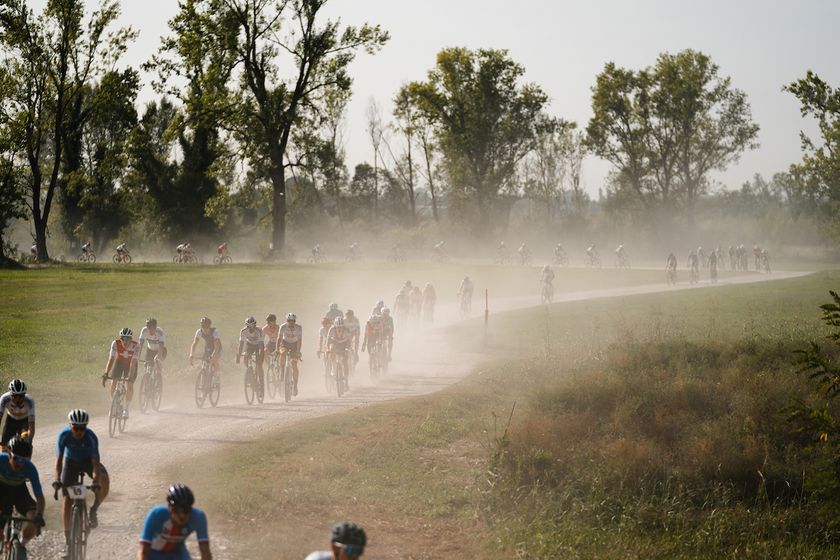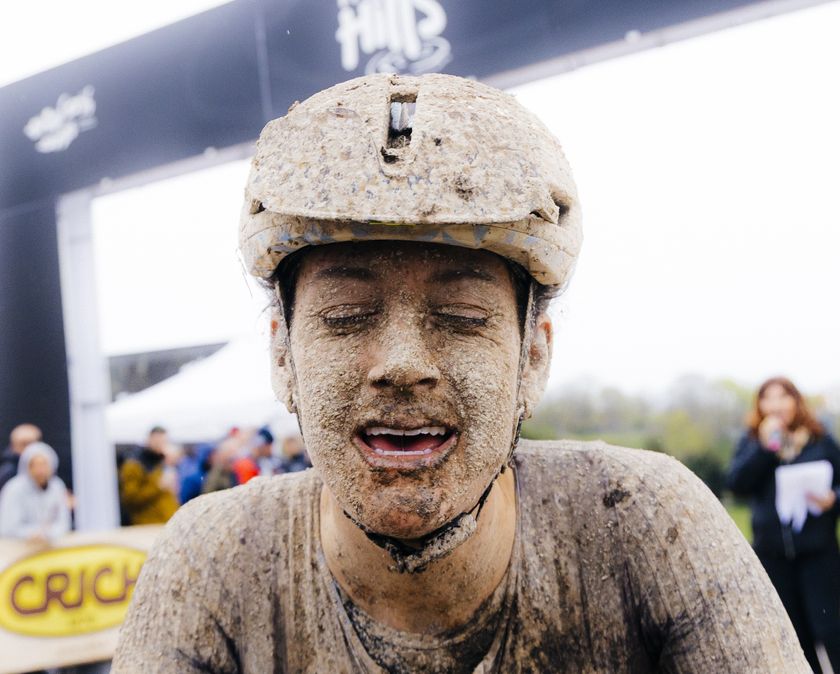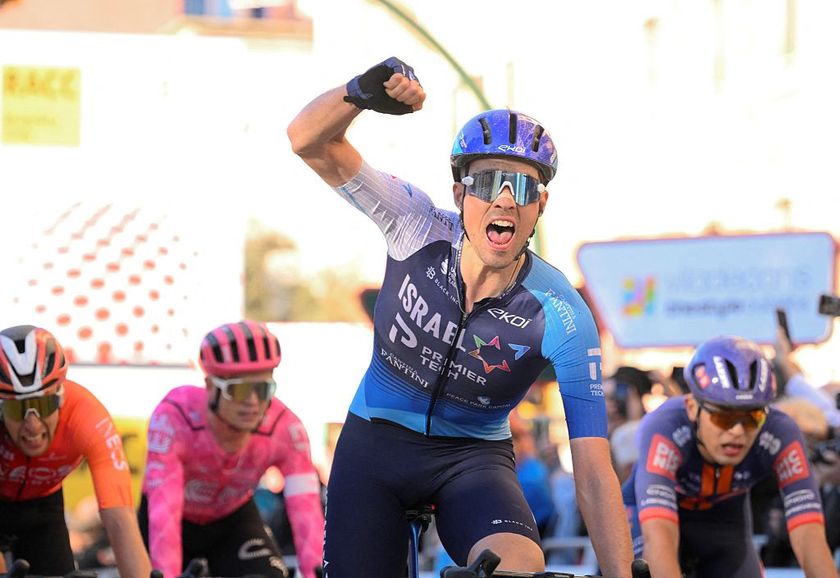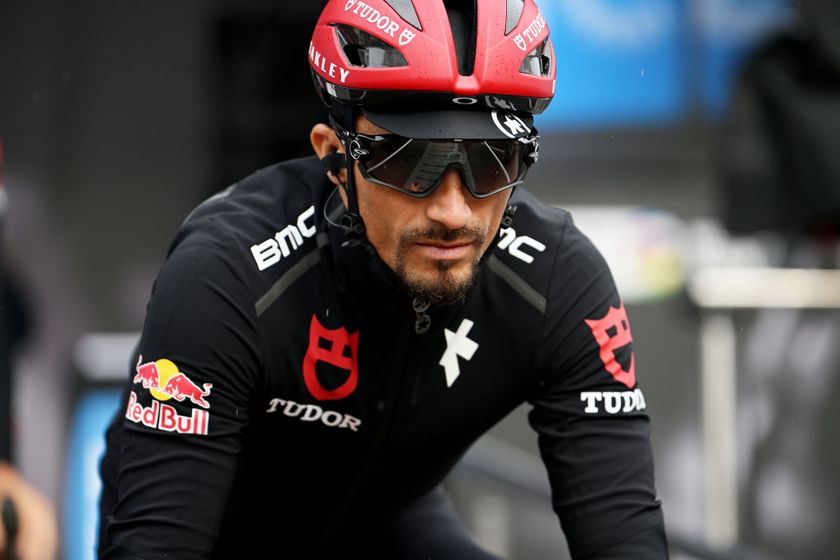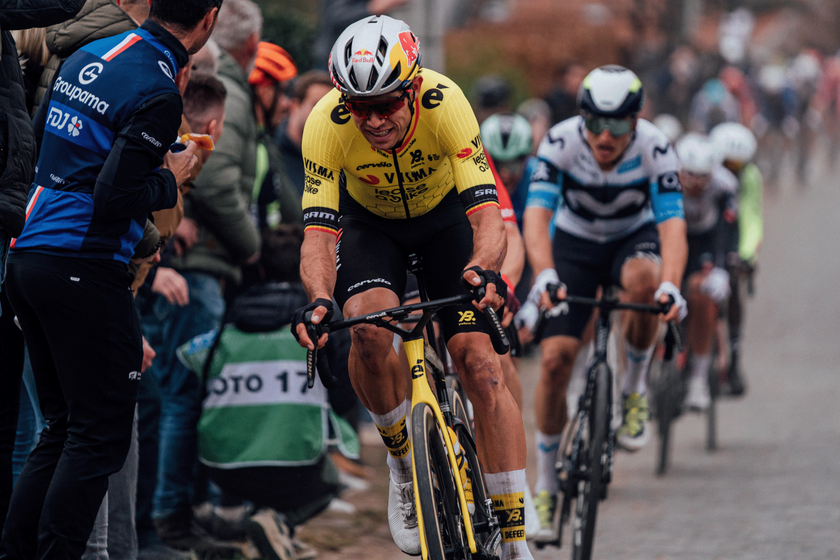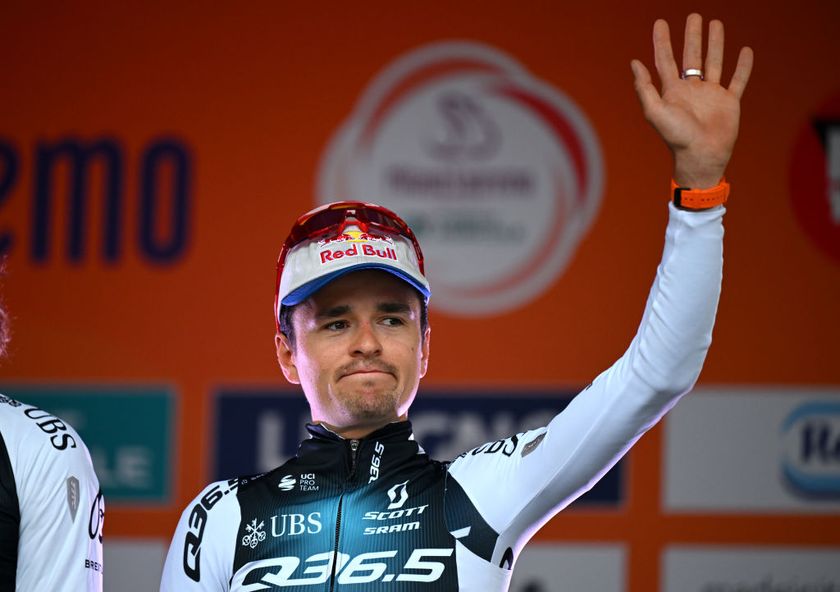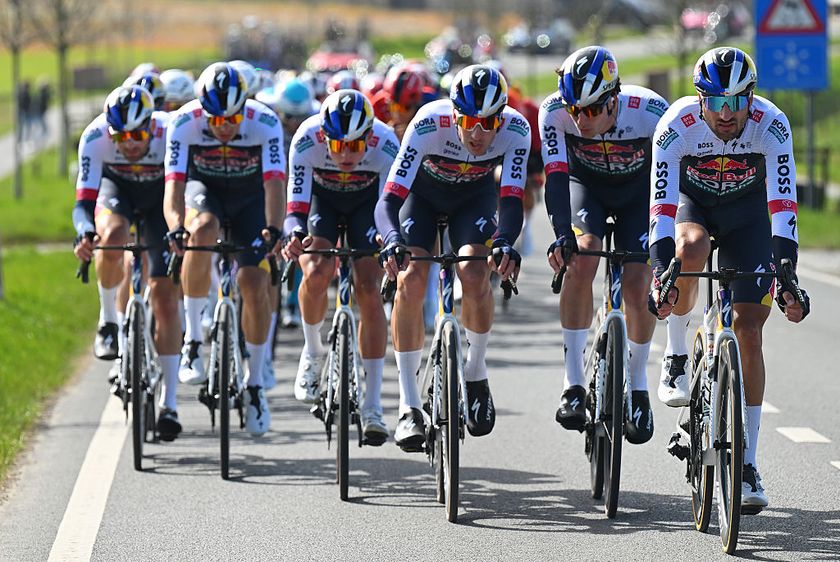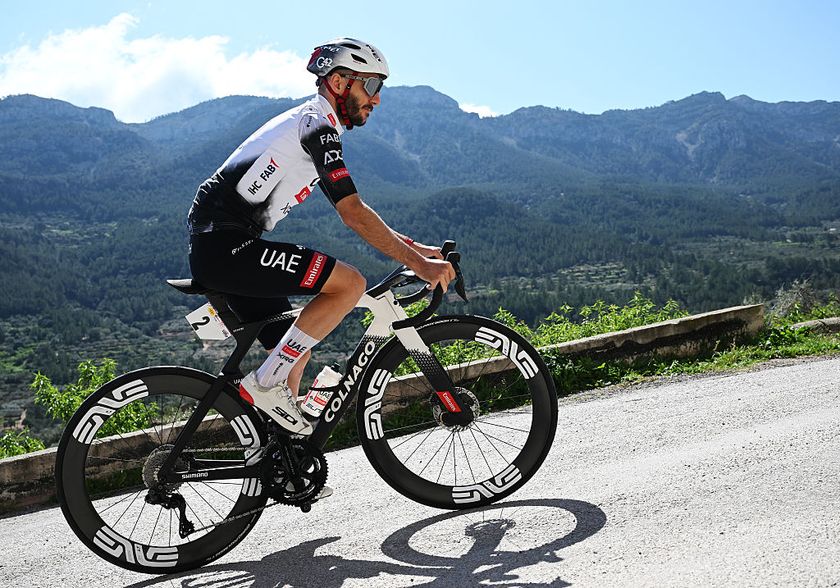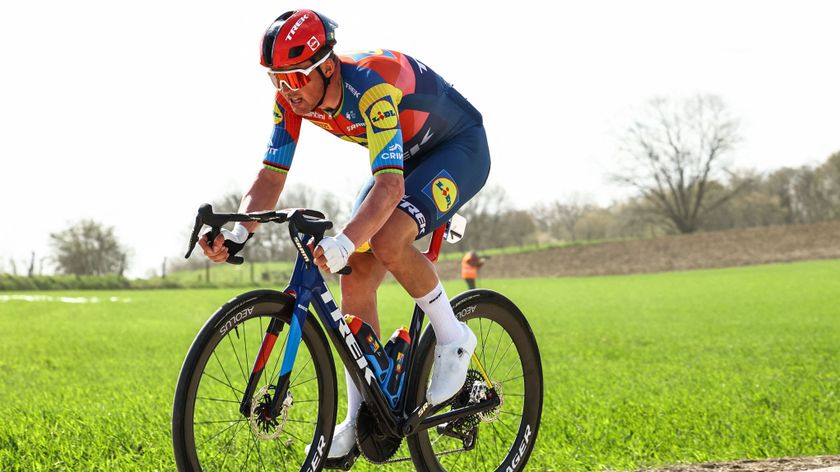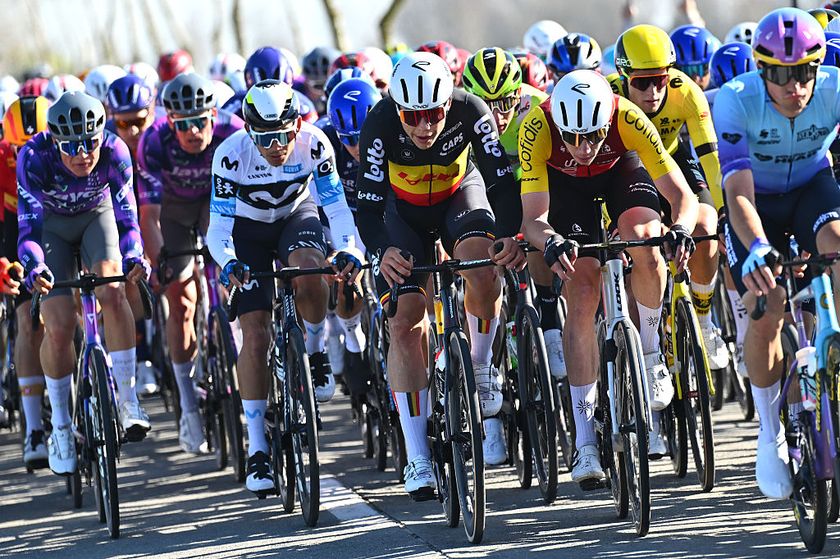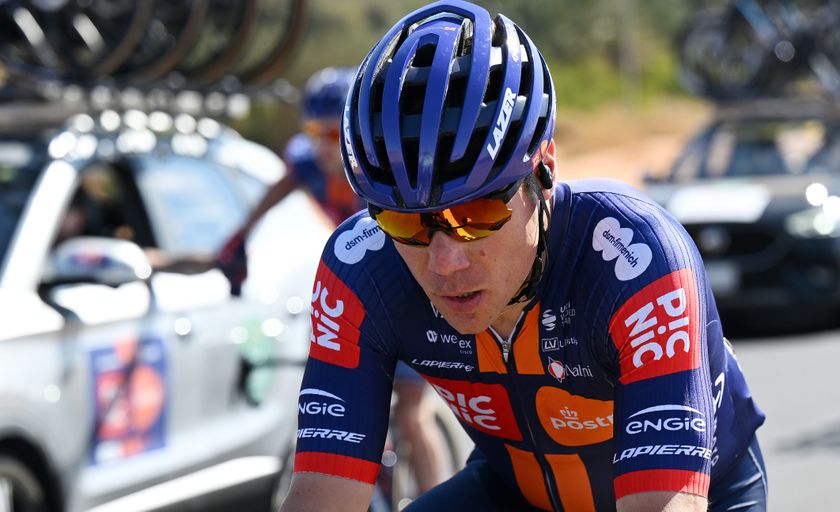Power naps, spectators' delight, staff headaches: How the double stage day at the Tour de France Femmes played out
Teams struggle to sort logistics as two races in one day returned to a Tour de France for the first time since 1991
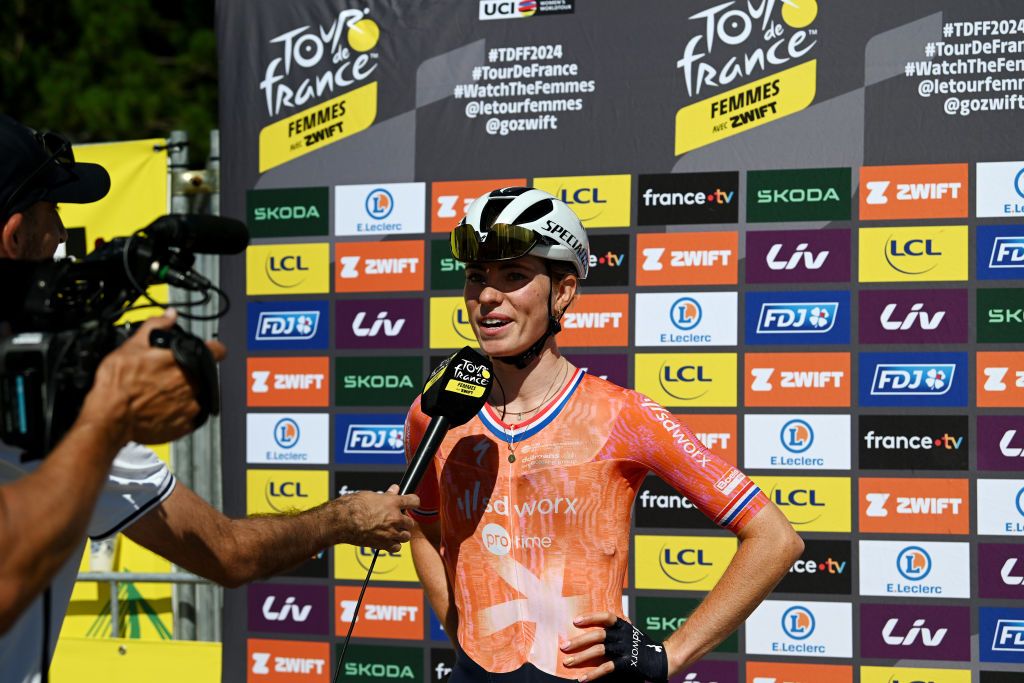
Double stage race days are not a new concept to elite races in cycling, featuring in men’s Tours de France back in the 90s but also seen as recently as the Baloise Ladies Tour this past July. However, the second day of action at the Tour de France Femmes proved more of a logistical headache, with many riders and teams not favouring the rare day as staff worked extra time to ensure things ran smoothly.
For stage winner Demi Vollering, there was time to take not one, but two power naps. For FDJ-Suez, it led them to book another hotel in Rotterdam so their riders could shower and cool down properly ahead of the time trial.
The 22 teams arrived in Dordrecht for the start of stage 2 around 8:00 a.m. local time, knowing they’d have to be swift with their movements both during the team presentation and official commitments and then exit back towards Rotterdam to ensure they made it in time before the 67.9km race ran it’s course.
With the time trial starting in just under four hours time after the road stage, it’s fair to say that some riders were left questioning why the decision to host two races in one day was taken.
“It’s not my favourite thing. Mainly it causes a lot of stress for the staff and the riders. I don’t know why they do it, but I’m sure there’s a reason,” said Lidl-Trek’s Lizzie Deignan to Cyclingnews at the finish of stage 2.
“It’s a lot to ask. I mean, we’re one of the biggest teams, we have a lot of staff so we can handle it but I’m sure for some of the smaller teams it’s a real headache.”
Deignan went on to admit that, “There’s a lot at stake isn’t there? There’s sponsors, there’s public, there's a lot more than just my opinion as a rider”.
Get The Leadout Newsletter
The latest race content, interviews, features, reviews and expert buying guides, direct to your inbox!
The Paris Olympic Games was the main reason, of course, forcing the Tour de France Femmes to move from its late July spot to mid-August. But also, the double stage day allowed organisers to start the race on Monday, to avoid clashing with the Closing Ceremony of the Games, and still finish with the grand Alpe d’Huez finale on a Sunday. All the while this kept the race at eight stages, to not reduce it in size from the first two editions.
FDJ-Suez shared a more critical view on having two races in one day, with Team Manager Stephen Delcourt stating that it was, “a lot of logistics” and “a lot of stress”, especially for staff.
“We are not happy about a day like this, two stages on the same day, it’s really hard for the riders and the staff with the logistics. For example, after the finish line, we’ll have no bus and we booked another hotel because it’s close to impossible to go to the hotel and come back and you need to recover,” Delcourt told Cyclingnews and Escape Collective in Dordrecht ahead of stage 2.
His head mechanic Lucas Fouquet, who worked tirelessly to wash the road bikes from the morning while ensuring all the TT bikes were set for the afternoon with his two colleagues, had similar complaints.
“A busy day yeah. It’s good for spectators, it's good for the cities. But as a staff member, I don't think it’s a good idea, and I think many of the teams think the same thing about this,” he said.
Condensed rest and recovery
For one of the smaller teams Roland, however, they actually had no qualms, with rider Maggie Coles-Lyster stating that things had run pretty smoothly for them throughout the day.
After recovering from a stage 1 crash, Coles-Lyster finished a strong eighth in the stage 2 sprint, before rolling down the start ramp first for the time trial with just a couple of hours to rest and recovery. But as a track rider just back from the Paris Olympics, multiple races in one day were no stress.
“It’s gone pretty smoothly, they’ve got it pretty dialled in,” she said of her team to Cyclingnews. “It’s not been too complicated, so no complaints. Maybe logistically behind the scenes for the staff, it’s been more complicated but from my point of view as a rider, it’s been pretty smooth.
“It’s kind of nice, get it done early and I can just hang out, have a nice shower, maybe get a nice coffee while I wait for the others and just start the recovery process now.”
Two hours and five minutes after Coles-Lyster set off on the 6.3km course, eventual stage winner Vollering had risen from her naps and got herself ready to take victory and the yellow jersey.
“I took two power naps after the first stage. When we came back to the hotel, I lay on my bed and fell asleep,” said Vollering in her winner's press conference. “Then after the recon I wanted to do some meditation but I fell asleep again. I think I was a bit too relaxed today.”
But while she relaxed in-between time waiting to start her effort, Vollering did say she wasn’t in favour of the double race day, crediting her teammates for keeping her safe in the hectic 67.9km sprint stage.
“I said before that I didn't really like it to have to focus two times. The first stage in the morning was a bit scary, everyone was fresh toward the front and everyone thinks they can sprint,” said Vollering.
“It was OK. My whole team worked hard to keep me in front the whole day, especially a shout-out to Mischa [Bredewold], Christine [Majerus], Blanka [Vas] and Niamh [Fisher-Black], they were working really hard the whole day with their nose in the wind just to keep me safe.”
With the Tour de France Femmes returning to its usual July spot for 2025, it’s unlikely they will need to get special acceptance to run a double stage in the coming years, even adding a ninth stage for the next edition. But it’s certain that the two stages in one day from the 2024 race will be memorable, be that for good or bad reasons.
Get unlimited access to all of our coverage of the 2024 Tour de France Femmes - including breaking news and analysis reported by our journalists on the ground from every stage as it happens and more. Find out more.

James Moultrie is a gold-standard NCTJ journalist who joined Cyclingnews as a News Writer in 2023 after originally contributing as a freelancer for eight months, during which time he also wrote for Eurosport, Rouleur and Cycling Weekly. Prior to joining the team he reported on races such as Paris-Roubaix and the Giro d’Italia Donne for Eurosport and has interviewed some of the sport’s top riders in Chloé Dygert, Lizzie Deignan and Wout van Aert. Outside of cycling, he spends the majority of his time watching other sports – rugby, football, cricket, and American Football to name a few.
